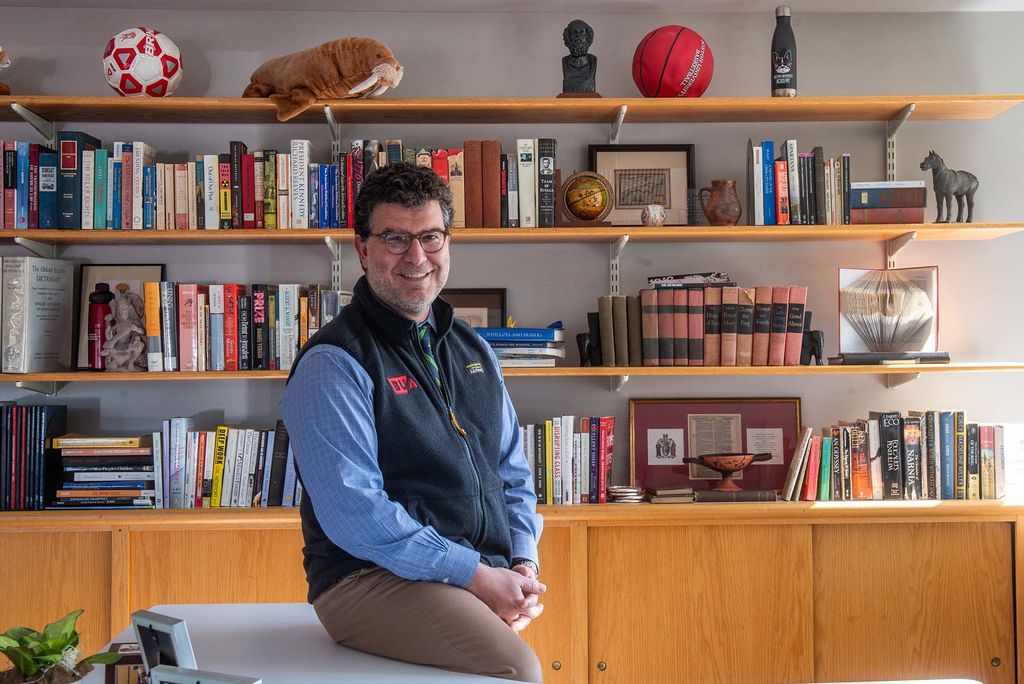Office Artifacts: Kari Lavalli

Click on the icons above to see more of what Kari Lavalli displays in her College of General Studies office.
Most everyone, especially in New England, considers themself a lobster expert: you catch (or more likely, buy at your local fish market), boil, crack, and eat. Fans of the bottom-dwelling spiny crustaceans might be alarmed to learn that the lobster fishing industry is in a precarious spot. Research shows that the warming waters in the Gulf of Maine mean its lobster population will eventually decline.
It’s fair to say that few people follow the fate of the crustaceans more closely than Kari Lavalli (GRS’92), a College of General Studies senior lecturer in natural sciences and mathematics and department chair, who has spent her career studying different species of lobsters all over the world.
Lavalli, whose CGS office overlooking Comm Ave is filled with lobster artwork and lobster toys, started working with the animals by accident. She was a graduate student in BU’s Marine Program in Woods Hole, where she yearned to work with a team studying whales, but the lab had no available spots. At the urging of Jelle Atema, now a College of Arts & Sciences professor emeritus of biology, she instead worked with lobsters. She focused on the crustaceans’ post-larval stages and how they avoid predation.
The lobster industry is a half-billion-dollar enterprise in Maine alone, so changes to the population as a result of climate change will have a devastating effect on the state, experts fear.
“Lobsters are commercially exploited, and we know more about certain groups than we do about others,” Lavalli says. “They’re pretty well studied in areas where there’s heavy exploitation. If you’re going to exploit them, you’re going to [have to] manage them to try to take care of the populations. You have to know a lot about their life history, find out who their predators are and how they avoid them. Climate change is really mucking things up.”
In our Office Artifacts series, BU Today highlights interesting artifacts professors and staff display in their offices. Have a suggestion about someone we should profile? Email amlaskow@bu.edu.
This Series
Also in
Office Artifacts
-
January 22, 2026
Office Artifacts: Cynthia Becker
-
November 18, 2024
Office Artifacts: Deborah Jancourtz
-
February 27, 2024
Office Artifacts: Lawford Anderson

Comments & Discussion
Boston University moderates comments to facilitate an informed, substantive, civil conversation. Abusive, profane, self-promotional, misleading, incoherent or off-topic comments will be rejected. Moderators are staffed during regular business hours (EST) and can only accept comments written in English. Statistics or facts must include a citation or a link to the citation.